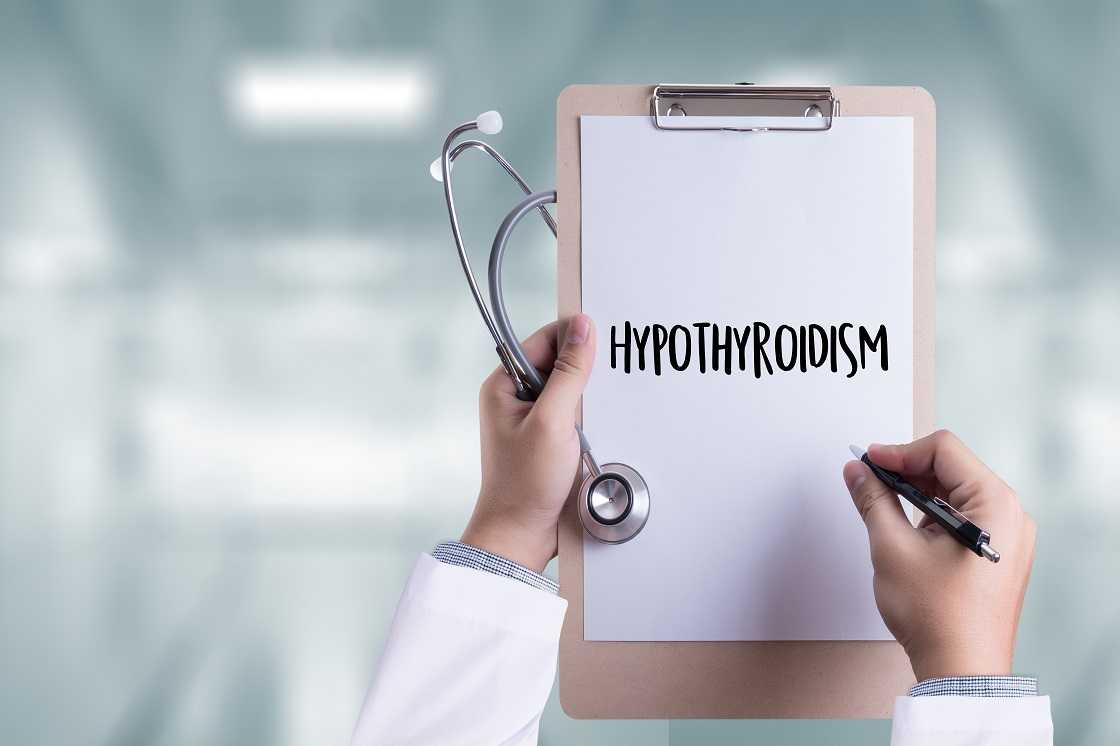Hypothyroidism, otherwise known as an underactive thyroid, is a common condition that occurs when the thyroid gland does not produce enough thyroid hormone. The thyroid hormone plays a vital role in regulating the body’s metabolism and energy levels, so when your body doesn’t produce enough thyroid hormones, you might experience a wide range of symptoms, including fatigue, weight gain, dry skin, and cold intolerance. While hypothyroidism can occur at any age, it is most popular among women over the age of 60. It is also more common in people with a family history of thyroid problems or who have certain risk factors, such as a history of radiation treatment to the neck or head or previous surgery to remove the thyroid gland.
The good news is that hypothyroidism is highly treatable with thyroid hormone replacement therapy. This typically involves taking daily medication in the form of a pill to supplement the body’s natural supply of thyroid hormone. With proper treatment and monitoring, it is possible to effectively manage the condition and reduce or eliminate symptoms.
In this blog post, we will delve into the causes, symptoms, and treatment options for hypothyroidism, as well as provide tips for managing the condition and maintaining overall thyroid health. By understanding more about this common but often misunderstood condition, you can take control of your health and live a fuller, more energized life.
What is the Thyroid Gland?
The thyroid gland is an essential hormone gland that is important for the growth, development, and metabolism of the human body. By continuously releasing a regular amount of thyroid hormones into the bloodstream, it aids in the regulation of numerous bodily processes. Your thyroid gland can be found in the lower front area of your neck. Your blood circulation carries hormones that are secreted by the gland, which have an impact on almost every organ in your body, including your heart, brain, muscles, and skin.
What is Hypothyroidism?
Hypothyroidism is a condition in which the thyroid gland, a butterfly-shaped gland located in the neck, is not producing enough thyroid hormone. The thyroid gland produces hormones that regulate the body’s metabolism, which is the process by which the body converts food into energy. Consequently, a deficiency in thyroid hormone slows down one’s metabolism.
However, hypothyroidism should not be confused with hyperthyroidism. Quantity is what distinguishes hypothyroidism from hyperthyroidism. The thyroid produces very little thyroid hormone when you have hypothyroidism. On the other hand, a person who has hyperthyroidism has a thyroid that produces excessive amounts of thyroid hormone. Your metabolism speeds up when you have hyperthyroidism, which is caused by elevated thyroid hormone levels. You have a slowdown in metabolism if you have hypothyroidism.
Between these two situations, there are many differences. You could struggle to get over the cold if you have hypothyroidism. You might not be able to endure the heat if you have hyperthyroidism. They represent the thyroid function’s polar opposites. You ought to be in the middle, ideally.
Causes of Hypothyroidism
There are several causes of hypothyroidism, some of which are:
- Autoimmune disorders: One of the most common causes of hypothyroidism is an autoimmune disorder called Hashimoto’s thyroiditis, in which the body’s immune system attacks and damages the thyroid gland.
- Thyroiditis: This is an inflammation of your thyroid that causes thyroid hormone leak out of your thyroid gland. Thyrotoxicosis, a disorder in which thyroid hormone levels are too high, develops initially as a result of the leaking raising the hormone levels in your blood. Thyrotoxicosis could linger for several months. After then, it’s possible for your thyroid to go into permanent underactivity, necessitating the use of thyroid hormone replacement therapy.
- Surgery: Surgery to remove the thyroid gland (thyroidectomy) may be necessary in cases of thyroid cancer or other conditions that affect the thyroid. This can result in hypothyroidism.
- Radiation treatment: Radiation treatment for cancer or other conditions can damage the thyroid gland and lead to hypothyroidism.
- Certain medications: Some medications, such as lithium and interferon, can interfere with the production of thyroid hormone and cause hypothyroidism.
- Congenital hypothyroidism: This is a rare condition that occurs when a baby is born with an underdeveloped or absent thyroid gland.
- Pituitary gland disorders: The pituitary gland, located in the brain, produces a hormone called thyroid-stimulating hormone (TSH) that helps regulate the thyroid gland. If the pituitary gland is not functioning properly, it can lead to hypothyroidism.
- Pregnancy: Some women may develop hypothyroidism during pregnancy due to changes in their thyroid function.
It is important to speak with a healthcare professional for proper diagnosis and treatment of hypothyroidism.
Symptoms of Hypothyroidism
Hypothyroidism symptoms can be vague and frequently resemble those of other conditions. They may consist of:
- Changes in the menstrual cycle
- Depression
- Constipation
- Dry hair and hair loss
- Elevated cholesterol
- Dry skin
- Fatigue
- Hoarse voice
- Greater sensitivity to cold
- Joint pain, stiffness, and swelling
- Muscle aches and stiffness
- Problems with memory
- Muscle weakness
- Slow heart rate
- Puffy face
- Swelling of the thyroid gland (goiter)
- Carpal tunnel syndrome
- Unexplained weight gain or difficulty losing weight
Hypothyroidism is typically diagnosed with a blood test to measure thyroid hormone levels. The test measures the level of thyroid-stimulating hormone (TSH) and thyroid hormones, such as thyroxine (T4) and triiodothyronine (T3), in the blood.
TSH is produced by the pituitary gland and helps regulate the thyroid gland. When the thyroid gland is not producing enough hormone, the pituitary gland produces more TSH in an attempt to stimulate the thyroid gland to produce more hormone. As a result, high levels of TSH and low levels of thyroid hormones in the blood may indicate hypothyroidism.
Your healthcare provider may also consider your symptoms and medical history when diagnosing hypothyroidism. They may also perform a physical examination and check for signs of hypothyroidism, such as an enlarged thyroid gland (goiter) or dry, pale skin.
If you are experiencing symptoms of hypothyroidism or have risk factors for the condition, it is important to speak with your healthcare provider for proper diagnosis and treatment.
Treatment Options for Hypothyroidism
There are several treatment options for hypothyroidism, such as dietary changes, including increasing your intake of iodine and selenium, which are essential for the production of thyroid hormone. In some cases, your healthcare provider may recommend supplements or other therapies to help manage the condition. However, the most popular treatment for the condition is through thyroid hormone replacement therapy.
Thyroid Hormone Replacement Therapy
Thyroid hormone replacement therapy is a common treatment for hypothyroidism. There are several different thyroid hormone replacement medications available, including levothyroxine, liothyronine, and liotrix. Levothyroxine is the most commonly prescribed medication and is available under various brand names, including Synthroid, Levoxyl, and Levothroid. Liothyronine is another option and is available under the brand name Cytomel. Liotrix is a combination of levothyroxine and liothyronine and is available under the brand name Thyrolar.
Out of all these, Levothyroxine is the most frequently used. By increasing the amount of thyroid hormone your body produces when taken orally, this drug balances your thyroid hormone levels. You consume this medication daily. When using this prescription, however, you must exercise caution because a few other drugs may affect how your body assimilates synthetic thyroid hormone. Make sure your doctor is aware of every medication, herbal remedy, and dietary supplement you use, including over-the-counter items.
Tips for Managing Hypothyroidism and Maintaining Overall Thyroid Health
- Take your medication as prescribed: It’s important to take your thyroid hormone replacement medication as directed by your healthcare provider. Skipping doses or not taking the medication consistently can lead to fluctuations in your hormone levels and cause symptoms to return.
- Eat a healthy, balanced diet: A healthy diet can help to support thyroid function and manage the symptoms of hypothyroidism. Aim to eat a variety of fruits, vegetables, whole grains, and lean proteins, and avoid processed and sugary foods.
- Get regular exercise: Exercise can help to boost energy levels and improve overall health. Aim for at least 150 minutes of moderate-intensity exercise per week.
- Manage stress: Chronic stress can interfere with thyroid function and worsen symptoms of hypothyroidism. Try to manage stress through techniques such as meditation, yoga, or deep breathing.
- Get enough sleep: Adequate sleep is important for overall health and can help to manage the symptoms of hypothyroidism. Aim for 7-9 hours of sleep per night.
- Avoid exposure to environmental toxins: Some environmental toxins, such as certain chemicals and heavy metals, can interfere with thyroid function. Try to reduce your exposure to these toxins by choosing products that are free from harmful chemicals and using filters to remove contaminants from your water.
- Stay up to date with your healthcare appointments: Regular check-ups and follow-up appointments with your healthcare provider are important for monitoring the effectiveness of your treatment and making any necessary adjustments.
By following these tips, you can help to manage your hypothyroidism and maintain overall thyroid health. It’s important to work closely with your healthcare provider to determine the most appropriate treatment plan for your individual needs.
Conclusion
There is no gainsaying how beneficial the thyroid hormone is to one’s wellness. This is why when the body stops producing adequate amounts of the hormone, one should quickly seek medical attention.
Out of all the treatment options, thyroid hormone replacement therapy is the most popular. However, this should be administered only under the supervision of qualified medical practitioners like the ones at HRT Doctors Group.
If you’re interested in receiving the best and most personalized care for your hormonal health, don’t hesitate to contact our clinic. Our team of experienced and compassionate doctors will work with you to determine the most appropriate treatment plan for your individual needs and schedule regular monitoring and follow-up appointments to ensure that your treatment is effective and to make any necessary adjustments to your medication or other therapies. Don’t wait, take control of your hormonal health and contact us today to schedule your appointment!
Questions with Answers
Hypothyroidism is a condition in which the thyroid gland does not produce enough thyroid hormones to meet the body’s needs, leading to a slower metabolism.
Common symptoms include fatigue, weight gain, cold intolerance, dry skin, hair thinning, depression, constipation, muscle weakness, and memory problems.
The most common causes are autoimmune diseases like Hashimoto’s thyroiditis, iodine deficiency, certain medications, radiation therapy, and surgical removal of the thyroid.
Hypothyroidism is diagnosed through blood tests, primarily measuring TSH (thyroid-stimulating hormone) and free T4 (thyroxine) levels. High TSH and low T4 typically indicate hypothyroidism.
Yes, untreated hypothyroidism can lead to severe complications, such as heart problems, infertility, myxedema (a rare, life-threatening condition), and developmental delays in children.
The standard treatment is daily hormone replacement therapy with levothyroxine, a synthetic form of T4 that restores hormone levels to normal.
While hypothyroidism is usually a lifelong condition, it is highly manageable with proper treatment, allowing most people to live normal, healthy lives.
A balanced diet rich in iodine, selenium, and zinc can support thyroid health. Regular exercise and stress management can also improve symptoms, though they do not replace medication.
Women, particularly those over 60, people with a family history of thyroid disorders, and individuals with autoimmune diseases like type 1 diabetes or celiac disease are at higher risk.
While not all cases can be prevented, ensuring adequate iodine intake and monitoring thyroid function in high-risk individuals can help reduce the likelihood of developing hypothyroidism.

